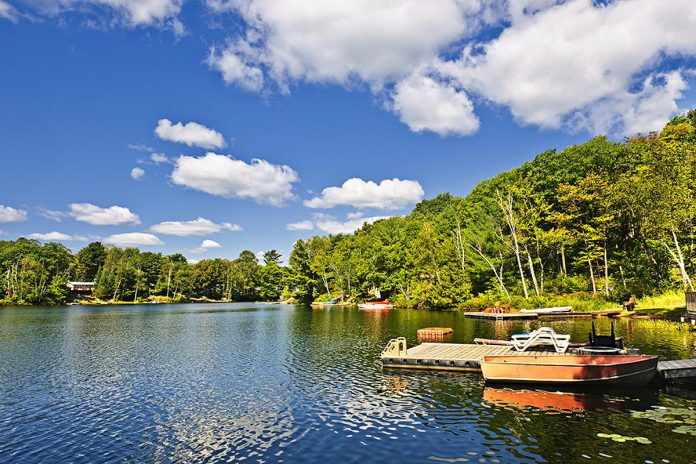The federal government’s proposed increase in the capital gains tax rate will “negatively impact 150,000 seasonal cottage owners” in Ontario, according to the Federation of Ontario Cottagers’ Associations (FOCA).
FOCA, which represents around 250,000 in Ontario who own waterfront properties, says the change announced as part of the 2024 federal budget last Tuesday (April 16) “raises significant concerns for many Canadians who have dedicated their lives to maintaining family properties.”
“It is important to recognize that these individuals are not the wealthiest 0.13 per cent of Canadians as described by the government last week, but rather middle-class families who have cherished these properties as part of their heritage and family legacy, in many cases for multiple generations and over several decades,” says FOCA CEO Lesley Lavender in a media release.
The federal tax on capital gains has long been a financial concern for families with seasonal properties, which have seen staggering increases in market value since the mid 20th century when many of them were originally built — and the proposed change will make the situation even worse, according to FOCA.
Unlike a primary residence, when a seasonal residence is disposed of, it is subject to a capital gain — the difference between the original cost of the property and its fair market value upon disposition.
For example, a waterfront property that a person inherited from their parents in the early 1980s may have had a fair market value of $75,000 at the time. Today, that same property could have a fair market value of $1,000,000 — resulting in a potential capital gain of $925,000 when the person disposes of the property, whether by selling it on the market or gifting it to a family member.
Currently, 50 per cent of capital gains for individuals are taxable, which would mean that the person disposing of the million-dollar property would be taxed on $462,500. The federal government is proposing that, effective June 25, the capital gains inclusion rate would increase to 66.7 per cent for individuals on any portion of a capital gain above $250,000.
Under this change, the person disposing of the million-dollar property would instead be taxed on $575,225 — 50 per cent on the first $250,000 and 66.7 per cent on the remaining $675,000 — an increase of another $112,725 in taxable income.
“This tax change will have a devastating effect on families’ ability to keep the next generation in the cottage, which could have a profound cultural impact on our heritage and way of life as Canadians,” Lavender said. “It’s crucial that any tax measures consider the unique circumstances of cottage owners and preserve their ability to maintain these treasured properties within their families.”
An owner who disposes of a seasonal property realizes a capital gain based on the fair market value of that property, regardless of whether the property is gifted to a family member or sold to a family member at well below fair market value. If the owner bequeaths the seasonal property to family, the capital gain is realized by the owner’s estate.
This can create a catch-22 situation for the seasonal property owner. Depending on their financial situation, they may have to sell the property on the open market to be able to afford to pay the capital gains tax they would otherwise realize by passing the cottage to the next generation of their family. While this risk already exists with the current capital gains tax rate, the proposed increase means it is more likely to happen.
FOCA says this could result in the premature sale of tens of thousands of Ontario cottage properties — opening the door to speculators, the proliferation of absentee landlords, and more short-term rentals in rural waterfront communities.
“FOCA hopes the government will amend the application of this new tax to mitigate its impact on middle-class families, and ensure the traditional stewards of these cottage properties can continue to enjoy the waterfront for generations to come,” the media release states.
This story has been corrected to indicate that FOCA represents 250,000 families in Ontario who own waterfront properties, which include both seasonal and permanent residents. The example in this story has been modified from a couple to a single person to simplify the math, as couples may be able to divide a capital gain depending on their joint ownership of a property and other factors.



























